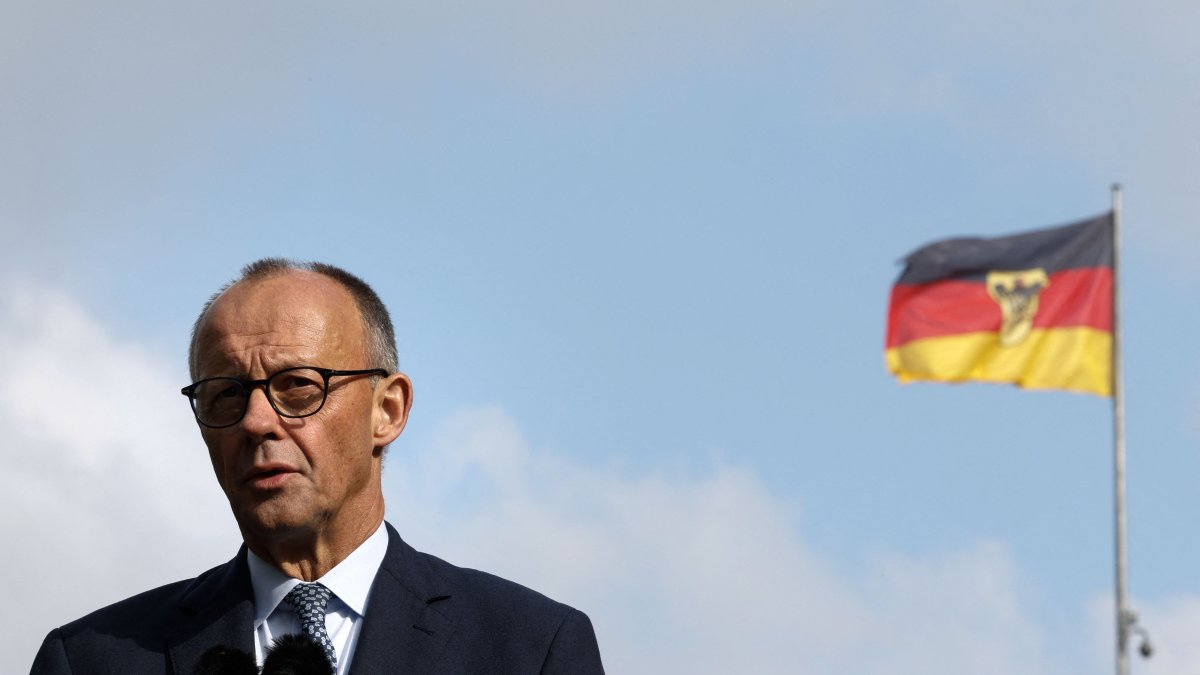On May 6, 2025, Friedrich Merz assumed office as Germany’s 10th Chancellor, taking on the formidable task of steering the country through the “Zeitenwende” (“turning point”) period, widely regarded as a defining moment in German politics. Leading the newly formed “grand coalition” between the Christian Democratic Union (CDU) and the Social Democratic Party (SPD), Merz returned to front-line politics after a long hiatus and, for the first time, entered a Cabinet position. His appointment, therefore, carried both hopes and anxieties.
Yet, his first months in office have fallen far short of expectations, shaped by his political past, lack of governing experience, and the growing fragility of German domestic politics. Unable to deliver on key promises, weakened by internal coalition disputes and steadily losing popularity, Merz has also failed to contain the rise of the far-right Alternative for Germany (AfD).
Throughout his political career, Friedrich Merz stayed in the eighth Chancellor Angela Merkel’s shadow and was often seen as an unpopular figure. Having spent over 20 years outside the political mainstream and never holding a ministerial role during that time, his appointment as chancellor sparked renewed debates about his lack of governing experience.
The most obvious sign of this appeared during the chancellor vote on May 6. Due to doubts within the CDU’s centrist wing about his leadership and the fragile coalition, Merz failed to secure a majority in the first round, losing eight votes from within his own alliance. For the first time in German political history, a chancellor was elected despite losing the support of coalition partners.
This result highlighted that Merz started his term with an image of a weak leader. One political analyst described the coalition as a “forced marriage,” arguing that the CDU and SPD were pushed into this arrangement by geopolitical pressures and strong public demand for a grand coalition. This early setback made it clear that Merz would need to face his opponents and internal divisions within his own party.
Falling popularity, domestic deadlocks
Merz’s first few months have also caused significant public disappointment. Compared to his predecessors, his standing in public opinion seems notably weaker. Polls taken after his 100th day in office show that Merz’s popularity is far behind Merkel and even his heavily criticized predecessor, Olaf Scholz, during the same period.
According to respected polling organizations like RTL/NTV and ARD-Deutschlandtrend, public satisfaction with Merz’s performance has fallen to 29%. Meanwhile, dissatisfaction has reached a record high of 67%. The government’s overall performance is viewed similarly negatively, with nearly 75% of respondents expressing dissatisfaction. Additionally, 77% of the public disapprove of the relationship between the coalition partners CDU/Christian Social Union (CSU) and SPD.
These figures show that the Merz government is quickly losing public trust and has failed to inspire confidence in the coalition. Many Germans believe that the coalition has been unable to clearly communicate a plan on key issues like economic uncertainty, migration and social policy.
Unlike the challenges he faces domestically, Merz has, somewhat unexpectedly, shown notable success in foreign policy. His clear and firm stance on Ukraine, his ability to keep dialogue open with U.S. President Donald Trump, and most importantly, his decision to halt partial arms sales to Israel, breaking a long-standing taboo, earned him the label of “Außenkanzler” (“Foreign Policy Chancellor”). This move, supported by the SPD, received wide approval from the German public.
However, these accomplishments on the international stage are still overshadowed by the worsening crises at home. While Merz appears to be a statesman abroad, he has not demonstrated the same leadership and decisiveness in tackling his country’s domestic problems.
One of Merz’s biggest challenges has been his failure to follow through on many ambitious promises during the election campaign. He pledged to reform the “citizens’ income” program, cut corporate taxes, tighten border controls (through stricter asylum procedures and the deportation of so-called “unwanted foreigners”), and reduce bureaucracy.
While tax cuts and stricter border controls were partially implemented, the coalition’s main goal, which was to reform the citizens’ income, was blocked by strong opposition from the SPD. Similarly, the promise to cut bureaucracy has mostly remained talk, with little real progress in Germany’s often complex administrative system. His promise of economic growth has also completely failed; the world’s third-largest economy has not emerged from stagnation in 2025 and is even expected to shrink.

Promotional items lie on a table in election campaign booths, Gelsenkirchen, Germany, Sept. 24, 2025. (Reuters Photo)
Coalition conflicts, AfD factor
One of Merz’s biggest challenges is his ideological and political conflicts with his coalition partner, the SPD. Specifically, the parties’ incompatible positions on social policy and budget issues often bring the government to the edge of paralysis. The main cause of these failures is the deep differences of opinion and lack of trust within the CDU/CSU–SPD coalition. Serious tensions have arisen over matters like social policy, budget deficits and public borrowing.
When SPD Labor Minister Barbel Bas dismissed Merz’s comments on the welfare state as “nonsense,” it showed how badly communication within the coalition had worsened. The government’s first major crisis happened over the appointment of a new Constitutional Court judge. Conservative MPs from Merz’s CDU/CSU refused to support the SPD’s candidate, Frauke Brosius-Gersdorf. The SPD called this a “serious breach of trust,” raising questions about the future of the coalition. Such incidents are seen as some of the biggest obstacles to making more ambitious reforms. Although the coalition partners united due to economic pressures and geopolitical uncertainty, they have not been able to overcome their different political identities and ideological divides.
Merz’s biggest and most risky challenge in domestic politics has been his fight against the far-right Alternative for Germany (AfD) party. In the last election, the AfD increased its vote share to 20.8%, making it the second most popular party in the country. Additionally, recent polls show that the AfD rose to 26% support, surpassing Merz’s CDU/CSU with 24%, to become Germany’s leading political force. This result shows that Merz’s pre-election promise to “stop the AfD” has not succeeded.
No longer just a protest party, the AfD’s rapid rise to the position of Germany’s second-largest political power reflects public dissatisfaction with issues like immigration, the economy, the energy crisis and growing distrust in the current political system. Although the AfD remains ostracized by other parties, especially the CDU, the fact that voting for the AfD is no longer seen as taboo among German citizens highlights that the party is no longer a fringe movement but has instead become part of Germany’s new political landscape.
The AfD’s explicit goal is to become Germany’s largest party in the next federal election in 2029. In pursuit of this goal, it places Merz in a difficult dilemma: either continue compromising with the SPD, thereby risking accusations from his own base of capitulating to the left, or break the long-standing “firewall” by cooperating with the AfD at regional or even federal levels.
This dynamic traps Merz in a political “vice,” leaving him vulnerable to criticism from both the right and the left for almost every move he makes. Against this backdrop, the questions “Can the AfD come to power?” and “Will there be early elections?” are increasingly being raised in Germany. While the AfD’s ascent to federal power remains unlikely for now, its rise intensifies political polarization and calls into question the sustainability of the current system.
The upcoming 2026 state parliamentary elections in five federal states will mark a turning point for the Merz government. Federal political dynamics could be dramatically reshaped, especially in Saxony-Anhalt, where the AfD is potentially projected to win a minister-president position. For Merz, the 2026 state elections might be his last opportunity to regain public trust. With commentary suggesting the government is already “exhausted” only 100 days after taking office, and with just 52% of Germans believing the coalition will last until 2029, the chances of early elections are increasing.
Merz must therefore handle both internal coalition tensions and the AfD’s radicalizing momentum. If he fails, Germany’s domestic division and instability could deepen, throwing the country’s political future into doubt. In this context, the 2026 state elections will serve as key indicators of Germany’s path forward.
